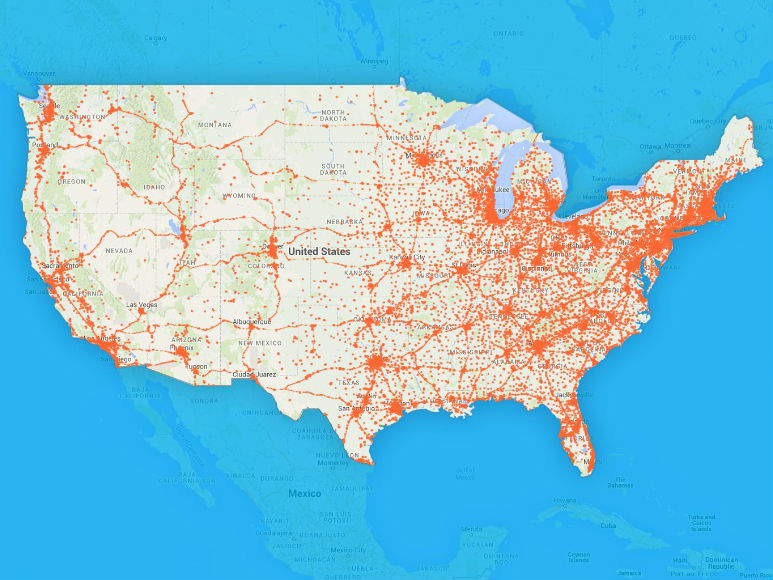Broadband Mapping Bills Pass House

The smarter way to stay on top of the multichannel video marketplace. Sign up below.
You are now subscribed
Your newsletter sign-up was successful
Bills to improve the FCC's broadband mapping effort, something virtually everyone conceded needs improving, has passed the House by voice vote.
The bills, which were among a handful of communications related bills that were favorably reported out of the House Energy & Commerce Committee without opposition last month, must still pass the Senate and make it to the President's desk for his signature.
The Mapping Accuracy Promotes Services (MAPS) Act (HR 4227) would make it illegal to "willfully, knowingly, or recklessly submit inaccurate broadband service data."
Related: Industry Tells Hill Better Broadband Mapping Is Needed
H.R. 4229, the Broadband Deployment Accuracy and Technological Availability (Broadband DATA) Act, "requires the Federal Communications Commission (FCC) to issue new rules to require the collection and dissemination of granular broadband availability data and to establish a process to verify the accuracy of such data, and more."
The bills essentially light a fire under an effort already cooking at the FCC. The commission voted earlier this year to come up with a more granular broadband data collection process that could be crowd-vetted.
“Today, the House passed two important bills designed to fix our nation’s faulty broadband maps," said Energy & Commerce Committee chairman Frank Pallone (D-N.J.) and Mike Doyle (D-Pa.). " Accurately mapping the availability of broadband internet service is essential to promoting the deployment of high-speed service to all Americans, especially those in unserved and underserved areas. We thank Committee members for working on these bipartisan bills, and we urge the Senate to act soon to ensure the reliability of broadbands maps so investments in broadband can have maximum impact.”
The smarter way to stay on top of the multichannel video marketplace. Sign up below.
“We’re closer than ever to fixing our outdated broadband maps and getting a clearer picture of who has – and who still lacks – 21st century broadband connectivity," said USTelecom president Jonathan Spalter. "This is a major step forward by the House and requires the adoption of a state-of-the-art technology and data driven approach to modernizing the national broadband coverage maps. Now it’s off to the Senate and soon enough future federal broadband spending in rural America will be based – finally – on the most accurate and granular map we’ve ever had. Almost there.”
“I thank the House for passing H.R. 4998, the ‘Secure and Trusted Communications Networks Act of 2019,’ H.R. 4229, the ‘Broadband DATA Act,’ and H.R. 4227, the ‘MAPS Act,’" said Competitive Carriers Association (CCA) president Steven K. Berry, "all of which CCA has supported and has been following closely. CCA members care deeply about network security and protecting their customers, and the legislation passed today will provide all carriers with much-needed guidance on securing their networks.”
“The first step in expanding broadband to communities in America who lack adequate access is to understand exactly where those communities are," said Energy and Commerce Committee ranking member Greg Walden (R-Ore.) and Communications Subcommittee ranking member Bob Latta (R-Ohio). "These bipartisan bills will help us assess the availability of internet across our country and take the necessary steps to improve connectivity for all Americans, regardless of their zip code. Importantly, these bills will help ensure we are not repeating past mistakes and are directing our limited resources to the communities who need them most. We look forward to swift action in the Senate to send these bipartisan bills to President Trump’s desk,” they said.
"Knowing where broadband is and isn’t is key to erasing the digital divide," said Claude Aiken, president and CEO of the Wireless Internet Service Providers Association (WISPA). "Our own mapping efforts, which have led to the creation of a broadband serviceable location fabric, provides a hyper-accurate level of detail demanded to comprehensively understand the extent of the divide. Similarly, the Broadband DATA Act and Maps Act make important contributions toward improving broadband mapping, working to rectify deficiencies in the Nation’s present maps to help policymakers clearly identify and efficiently guide support to the right places.
Contributing editor John Eggerton has been an editor and/or writer on media regulation, legislation and policy for over four decades, including covering the FCC, FTC, Congress, the major media trade associations, and the federal courts. In addition to Multichannel News and Broadcasting + Cable, his work has appeared in Radio World, TV Technology, TV Fax, This Week in Consumer Electronics, Variety and the Encyclopedia Britannica.

